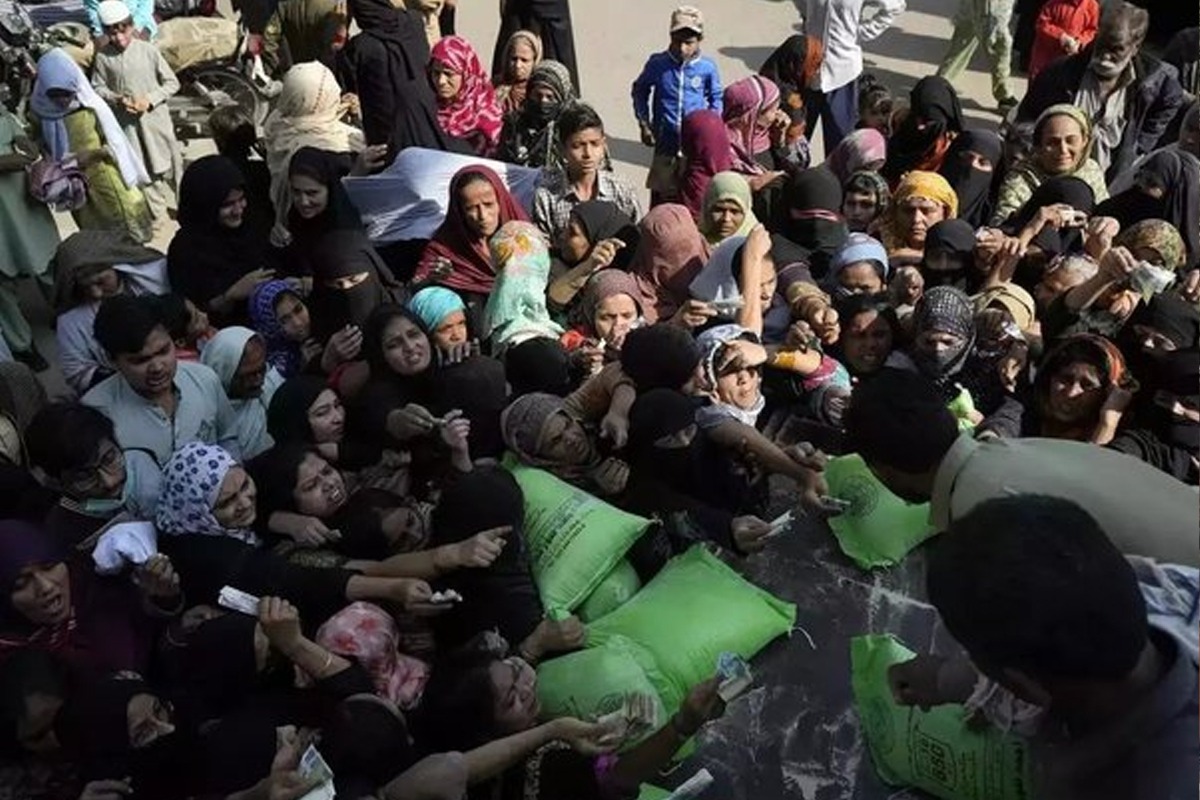At least one life was lost and several were injured in food crisis-related stampedes across Pakistan. Heart-wrenching videos of people fighting over a few kilos of wheat have gone viral and yet again brought back focus on how the Islamabad and Rawalpindi elite’s frenzied preoccupation with India is making Pakistan’s poor suffer.
Even as the country reeled under one of the worst humanitarian crises it has faced, representatives of its political elite went gallivanting around global conferences running propaganda against India. At the same time, the country got $ 450 million in assistance approved by the US to support the Pakistan Air Force’s F-16 fighter to fight terrorism. Pakistan increased its defense budget by Rs 83 billion, all with the purpose of keeping India on the edge.
The current food crisis was triggered by the devastating floods that Pakistan faced between June and September 2022 which destroyed its crops. A deluge of international aid was immediately provided to build the country back. As per a report, donors have pledged more than $8 billion to Pakistan for recovery efforts. But corruption has impeded the fair distribution of relief money which continues to be siphoned off by the Pakistani elite.
Pakistan is awash with foreign money with no relief for its poor. Women continue to be denied basic rights in the Islamic republic and yet it has shamelessly accepted money in their name. In December 2022 the US Senate pledged $200 million for promoting gender equality in Pakistan as part of a $1.7 trillion spending package.
Pakistan was founded on the basis of the Two Nation Theory—the idea that Muslims cannot coexist with Hindus and hence deserve their own separate nation. Inevitably, Pakistan quickly turned into an Islamist military state, denying its Hindu past and institutionalising its hatred for Hindus and India. It made Jammu & Kashmir, a Muslim-majority state within India, the focal point of its foreign policy, conquest, and obsession. In the last seven decades, it fought four conventional wars and has been running around four-decade-long cross-border terrorism in Jammu & Kashmir. This has kept the Pakistani military rich and in power but drained the country financially especially since the country was put on the grey list by FATF, an international watchdog on terror funding. Additionally, New Delhi in the last nine years has raised the cost of Pakistan’s misadventures in Indian territory.
On the other hand, India’s decision to de-hyphenate its existence and policies from Pakistan has yielded rich dividends. Today, India has established itself as a global power with diversified bilateral and multilateral relations solely based on the interest of its billion-plus citizens and economic well-being. India’s subsequent governments prioritized its people, universal goals of fighting poverty and hunger, and building strong institutions. Combined with the efforts of industrious individual Indians, India outmaneuvered its rogue neighbour in every sector.
As long as Pakistani elites chase the chimera of annihilating India, their country will continue to betray its poor. A nation is not made of a ruling elite and an imaginary enemy. Its people are its strength. If Pakistan wants to get rid of the tag of being a failed state, it must honour its people.










